People's Artist Kim Lien: "Pink Lotus" in Vietnamese rowing village, 4 times met Uncle Ho
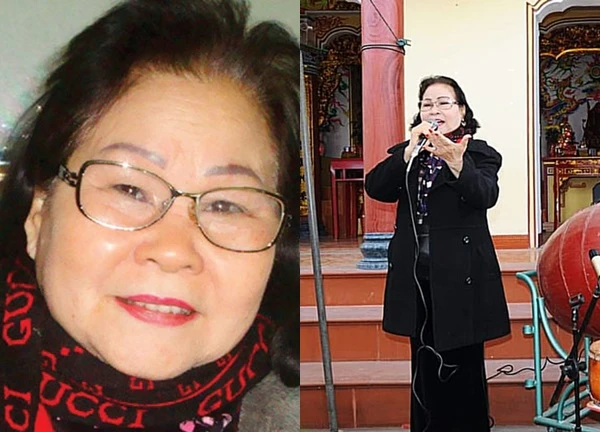
4 | 0 Discuss | Share
Ha Thao entered the actor training class of the Vietnam Cheo Theatre at the age of 15, when the Theatre came to her hometown of Then village (Thai Dao commune, Lang Giang district, Bac Giang province) to recruit students. Ha Thao started her life away from home from then.
Born and raised in Then village (Bac Giang) - a land with a tradition of art, everyone in the village knows how to sing folk songs, so Ha Thao had the opportunity to nurture her singing voice. At the age of 15, she was admitted to the actor training class of the Vietnam Cheo Theater. Now, after more than 10 years of studying and working, she is one of the outstanding faces of the Theater.
Ha Thao started her life away from home after being admitted, studying singing and taking cultural supplementary courses at the Circus and Variety Arts College. In the era when traditional theater was on the decline, finding someone with a good voice, beautiful appearance, and willing to endure hardships to follow the profession was not easy; therefore, the teachers were very pleased to choose a young face with a golden voice like Ha Thao. Thao was often chosen to play the female lead roles.
For example, in Quan Am Thi Kinh, she played Thi Kinh, not Thi Mau. Thao said, Thi Kinh looks like that but in fact it is harder to act than Thi Mau. In addition to the inner feelings, acting out the appearance is also quite demanding, the movements of the legs and arms must be precise, not too wide, not too closed.
Although she studied classical literature, Thao's first role on stage was that of a ghost in the play Gieng Thoi Trong Long Pho. She appeared on stage for only a few minutes and was awarded a Silver Medal at the Modern Themed Cheo Arts Festival. When she was assigned the role of nun Dam Van in the play of the same name, Thao shone, becoming the number one face of the theater. Although she was still young and not yet experienced on stage, Ha Thao confidently played the role of Dam Van - a gentle woman and a loyal revolutionary soldier.
The Nun Dam Van by playwright Hoc Phi is one of the classics of Vietnamese revolutionary theater. Dam Van is a difficult character, requiring the actor to have strong inner strength and a good singing voice. Thao's greatest achievement is the Gold Medal for the role of Sen in the play Duong Truong Duyen Phan, a play performed at the 2013 National Professional Cheo Theater Arts Competition.
Since her school days, because of her gentle appearance, Ha Thao was "nailed" to the roles of gentle, kind-hearted female characters. She always played her roles well, but honestly, she did not love any role too much because they were usually bland characters. The role she liked the most was Thiet The in the play of the same name by the Vietnam Cheo Theater, which was recently restored by order of the Ministry of Culture, Sports and Tourism. Thiet The was beautiful, sang well, and danced well, but because she could not stand the poverty, she abandoned her family, hoping to find another life. Thiet The is a type of female role, good in nature but not willing to endure hardship, but loves fun, loves a rich life and tries every way to achieve it.
There have been many excellent actors who have played this role, but Ha Thao's Thiet The has her own unique characteristics of being frivolous and fragile; both hateful and pitiful, making viewers cry rather than hate. This role makes Ha Thao happy: "I like "destructive" roles because it helps me discover myself". She was also chosen for the role of the princess in the play Thich Ca Mau Ni. The princess is inherently gentle, but because she is possessed by a demon, she has a reason to be "destructive", which is somewhat in line with Thao's expectations. However, she is still waiting for better roles, with more opportunities to perform.
Ha Thao's greatest achievement was winning the Gold Medal for the role of Sen in the play "Duong Truong Duyen Phan" by the late author Tran Dinh Van, directed by Doan Dinh Vinh. In 2013, when staging this play to participate in the National Professional Cheo Stage Art Competition, the Theater's leaders did not have much hope. However, when it was put on stage, the tables were turned, "Duong Truong Duyen Phan" was simple but good, winning the silver medal; the main actress and actor were both beautiful in both voice and appearance, acting realistically.
Thiet The was beautiful, sang well, and danced well, but because she could not stand the poverty, she left her husband and sought a different life. Meeting the Governor from Hue, Thiet The also wanted to be rich and followed him, only to witness the first wife's unique jealousy.
Thiet The is a female role, good in nature but not willing to endure hardship, but loves fun, loves a rich life and tries every way to achieve it. There have been many excellent actors who have played this role, but Ha Thao's Thiet The has a unique feature, which is the frivolity, fragility, both hateful and pitiful, making viewers cry more than hate.
The actress confided that she loves her job very much, even though it is sometimes difficult because she has to go on long tours, starting in the early afternoon and returning home after the show is past midnight. Many days she performs outdoors, getting soaked in the rain but still cannot rest, and gets sick the next day. Her class had 20 actors at that time, now there are only more than ten people still pursuing the profession. Some quit because they do not have the ability to continue, and some are bored with being an actor despite having talent and beauty. Ha Thao herself has never thought of quitting the profession for those reasons. For her, the road ahead is always full of challenges, requiring both patience and passion.
People's Artist Thu Ha: A child of a traditional opera family, full of passion for the profession despite the years 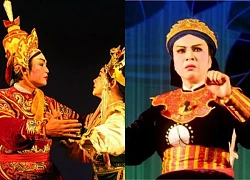 Như Lan14:39:32 13/02/2025Artist Thu Ha was born into a family with a tradition of singing, it is not an exaggeration to say that her family lives on singing. It seems that singing is ingrained in her subconscious so that when she gets old, the passion for the profession still remains.
Như Lan14:39:32 13/02/2025Artist Thu Ha was born into a family with a tradition of singing, it is not an exaggeration to say that her family lives on singing. It seems that singing is ingrained in her subconscious so that when she gets old, the passion for the profession still remains.

4 | 0 Discuss | Share
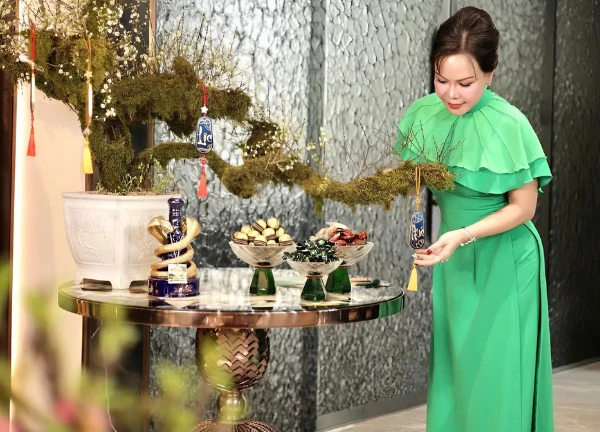
4 | 0 Discuss | Share

1 | 0 Discuss | Share

1 | 0 Discuss | Share
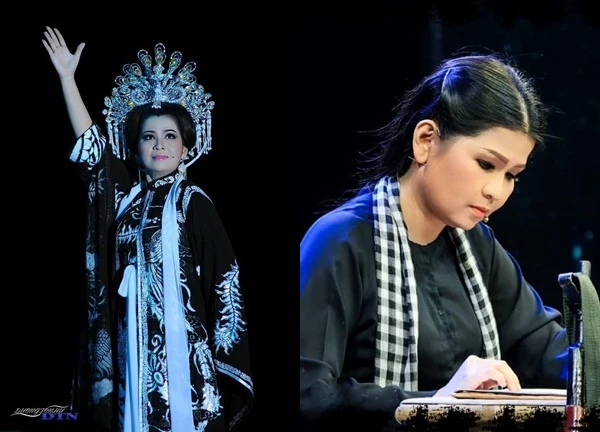
4 | 1 Discuss | Share
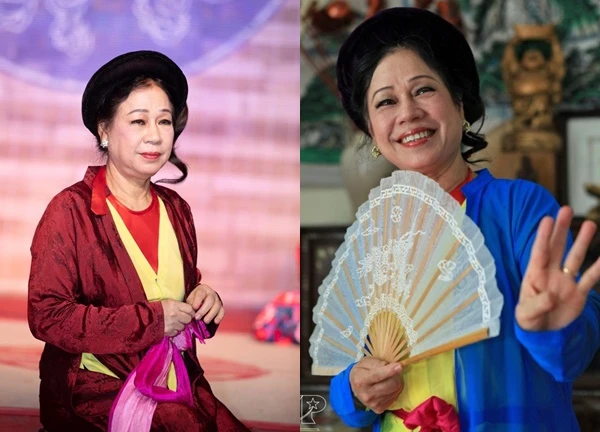
4 | 0 Discuss | Share

1 | 0 Discuss | Share

3 | 0 Discuss | Share

2 | 0 Discuss | Share

1 | 0 Discuss | Share
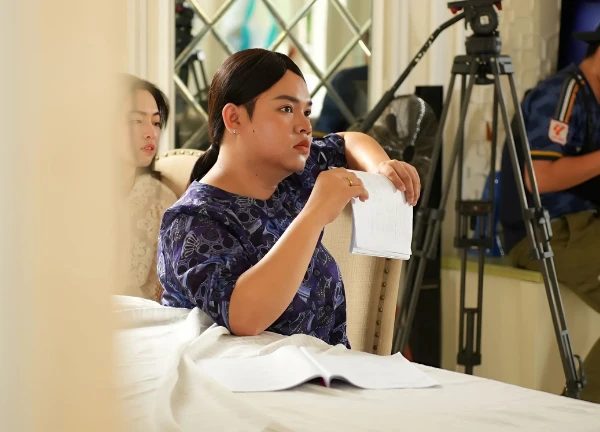
3 | 0 Discuss | Share

4 | 0 Discuss | Share

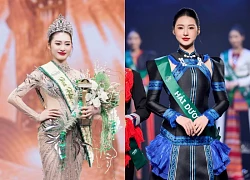

1 | 0 Discuss | Report